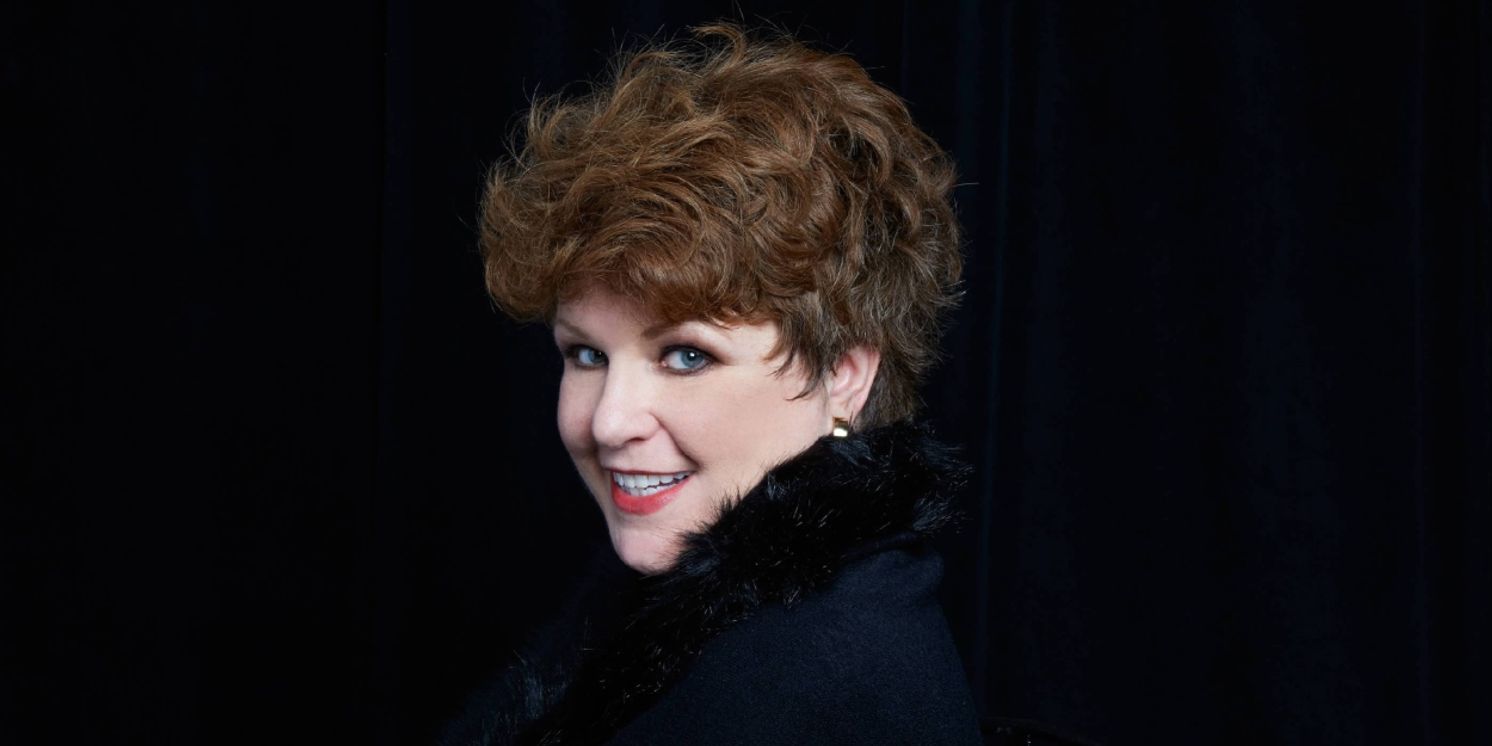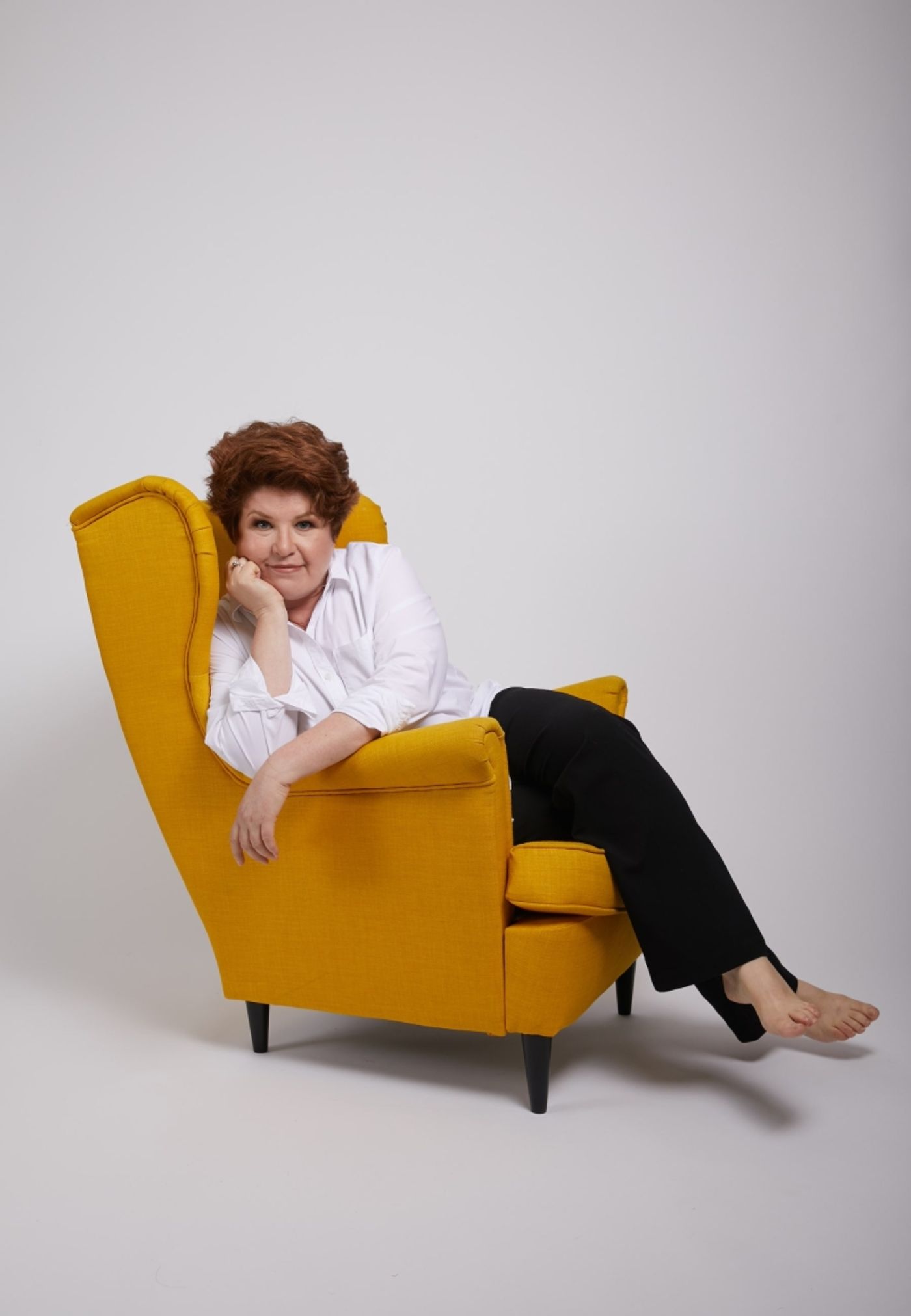Review: AUTUMN IN NEW YORK: VERNON DUKE'S BROADWAY Is a Crowd-Pleaser at Chelsea Table + Stage
Klea Blackhurst triumphs again. She's back on May 5 with a Jerry Herman show

You can’t really put the enormously entertaining Klea Blackhurst in a box. Her series at Chelsea Table + Stage, referred to as her “Box Set,” gives ample evidence of her versatility beyond the Ethel Merman merriment she’s justly (but not just) celebrated for. The months ahead will bring back her explorations of the works of Jerry Herman (that’s up next, on May 5), Hoagy Carmichael, plus a potpourri of others. Her April visit to the venue revisited her vibrant Vernon Duke deep dive, which had also been preserved as a CD/digital release. She premiered it in 2003 to coincide with the 100th anniversary of Duke’s birth. At the time, she tells us, that was the obvious answer to her choice of a tribute to follow the Merman-a-thon when friends asked her “Klea, why Vernon Duke?” And “Why now?” Others wondered “Why you?” But some folks bluntly inquired, “Who is Vernon Duke?” Certainly it was a worthy goal to increase the name recognition factor of the man who, in fact wrote music (and occasionally lyrics) to a few items that are undeniably part of the Great American Songbook — “Taking a Chance on Love,” “April in Paris,” “I Can’t Get Started,” and the one the set and album are named for: “Autumn in New York.”
The richness of the melodies of these and the lesser-known treats were brought out by the arrangements and accompaniment of the musicians at this gig – pianist Michael Rice, guitarist Sean Harkness, and bassist Steve Doyle — as well as her supple voice. And she makes a feast of the lyrics by such masters as E.Y. Harburg, Ira Gershwin, Howard Dietz, and John Latouche. (The only example of Duke’s own words was the off-season “Autumn in New York/ Why does it seem so inviting?...” but Miss Blackhurst made them all so inviting.) I only wish that there’d be a couple of pensive ballads reconfigured to have just guitar accompaniment as the superb Mr. Harkness, whose sensitive playing has brought out the sensitive side of many a cabaret crooner, seemed underused.
Oh, there was one non-Duke dazzler: 1919’s “Swanee” by George Gershwin and Irving Caesar. Why? Because it was a big favorite of the songwriter being saluted, inspiring him to write popular music and set his sights on Broadway, and composer Gershwin became a friend who encouraged such a path. (It also makes a socko finale, having more innate pizzazz than anything else on the set list that leaned more to ballads and chipper charmers such as the proclamations of having “Not a Care in the World” and being content to be rich in friends even though one may be financially “Poor as a Churchmouse.”)
There were dips into Duke data between numbers, tracing the career of the man born as Vladimir Dukelsky in Kiev, who kept his birth name for the credits on his many classical works in a parallel career. An early bloomer, he wrote an opera at age 8 and a ballet at age 12, with much more to come as an adult. As far as the focus of this Broadway-centric set, the musical theatre projects didn’t bring bonanzas and bona fide hits, except for Cabin in the Sky, which was also made into a film with its original stage star, Ethel Waters. But the bubbly and blithe Blackhurst burst forward with energy invested in making the souvenirs of a series of flop musicals shine. In what she labeled her inclination towards “musical comedy forensic” explorations, she was intrigued with his lack of luck. But, as we’ve learned in many cabaret shows and concerts, a show with a short run or a crash and burn before making its way to the Great White Way can have some pretty great songs. (Record producer Ben Bagley curated a few different albums featuring Duke items in his invaluable Revisited series rescuing lots of otherwise unrecorded curiosities by the major theatre songwriters.)

Part of the package of pleasure of a Klea Blackhurst show is her infectious delight in sharing bits of history she’s researched that give context to the chosen repertoire. The serendipity of events tickles her fancy, such as the tale of how Broadway star Mary Martin made the decision about which offer to choose for her next role. To her, it was literally a toss up. So, she tossed a coin, and signed on for Dancing in the Streets. The music was by Vernon Duke, with lyrics by Howard Dietz; the Duke/Dietz Streets closed on the road, never making it to the street known as Broadway. The other musical she might have picked, by the way, did quite a bit better: Oklahoma! Other fun facts included the saga of how Ethel Merman was signed for another Duke/Dietz project, Sadie Thompson, but quit after a few days of rehearsal because of her discomfort with the lyrics, and was replaced by June Havoc. (The Merman/musicals-savvy crowd’s audible reaction made it pretty much unnecessary to point out the historical connection — that Ethel would go on to portray Havoc’s real-life mother in Gypsy (also a part on the Blackhurst résumé).
A little tweak to the lyric in the introductory verse of “Swanee” for modern audiences changed the original “The birds are singing: It is song time” to “The birds are singing: It ain’t Sondheim.” Coincidentally, this particular songbird will be singing some Sondheim soon – not words from Gypsy about Baby June, but it is in June. That’s when Klea Blackhurst will be among the huge company of the concert version of Follies at Carnegie Hall. Another June gig (June 9, two sets) finds her among the performers at Dizzy's Club in Jazz at Lincoln Center for Johnny Mercer songs -- along with old pal Billy Stritch, her cohort for the Hoagy Carmichael project.
Header photo credit: Bill Westmoreland.
Reader Reviews
Videos

